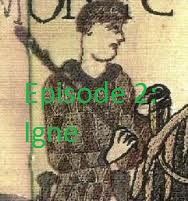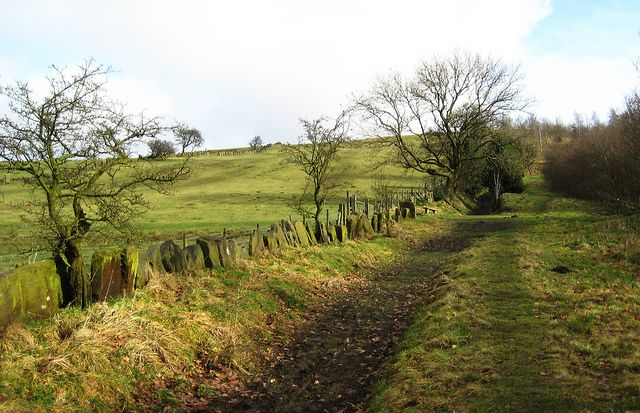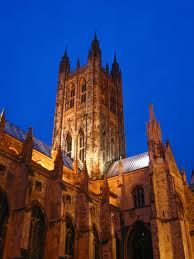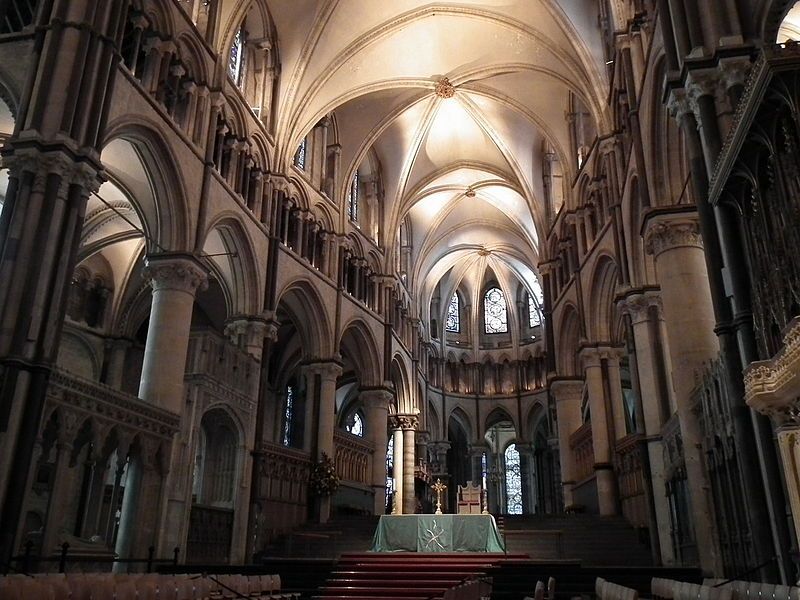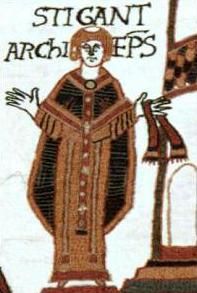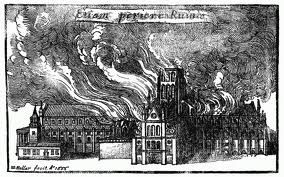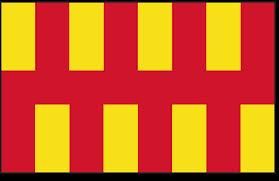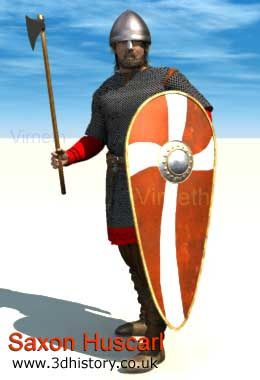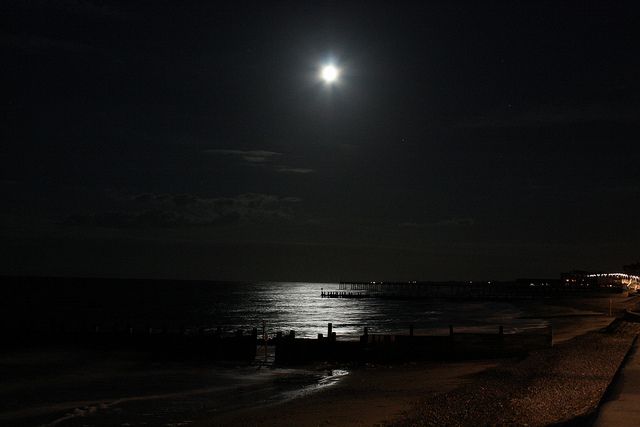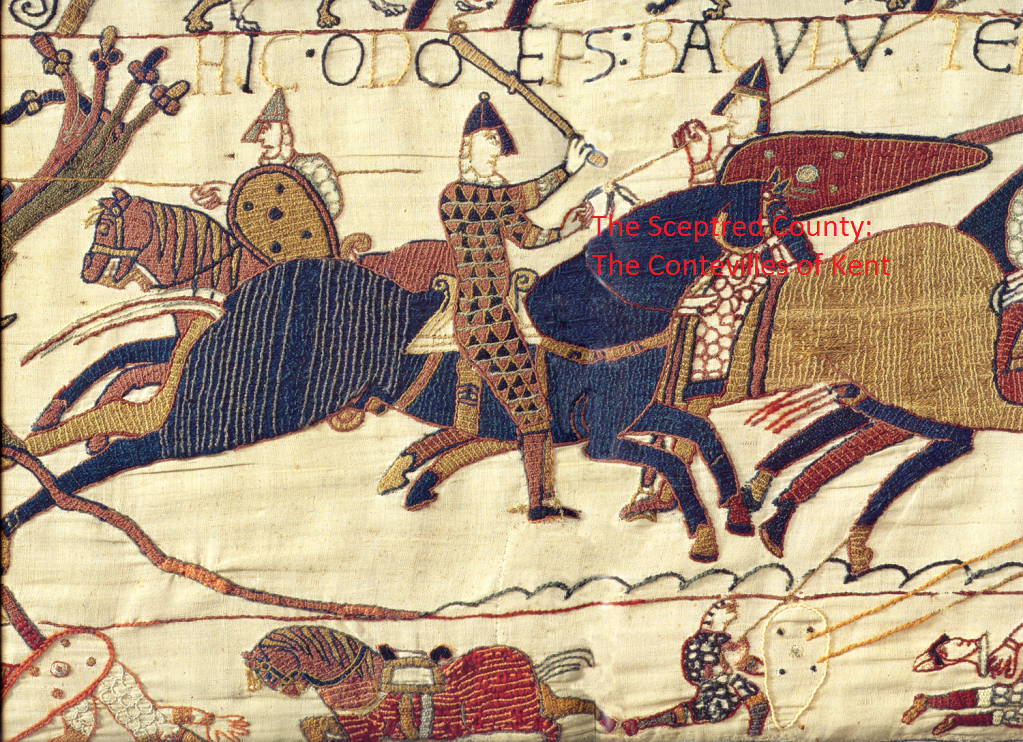
Since I like to think of my AARs (especially the narrative ones) as TV shows...
SEASON 1: MY BROTHER, THE BASTARD
EPISODE 1
THE OFFICIAL THEME MUSIC (LIFTED FROM SIMON SCHAMA'S A HISTORY OF BRITAIN):
[video=youtube;O3JJ5dXEZ4c]http://www.youtube.com/watch?v=O3JJ5dXEZ4c[/video]
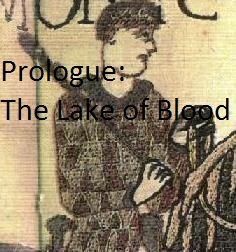
Then
14 October, 1066
Senlac Hill
England
Surprisingly, the autumn sun was beating down on them as they gazed up at the ax-wielders at the top of the hill.
Odo had been told that England was usually a grim, cloudy, rainy country, especially in the fall and winter, but here it was October and the sun was shining on him and his fellow knights on their horses, and glittering off the axes of the Saxons waiting for them.
Odo looked around him. All over the Norman lines, knights ran their fingers over their chain-mail, as if they were trying to confirm its protection. In the back, he caught someone's gaze.
After a moment, he realized it was his brother's.
William, 'the Bastard' as his enemies called him, Duke of Normandy, gave the order, and the archers fired.
Up, up, the shafts of death made their way up until they seemed to pierce the sun itself, then plummeted over the Saxon ranks, smashing into hauberk and shield, into throat and chest.
It had begun.
Odo held on to the reins of his black horse, Broyeur, tightly. Until the order was given, they were to stay put and not try to ride up the hill.
In the meantime, the footsoldiers ran up Senlac Hill, shouting obscenities while those fools who truly believed that Harold, the current king of England, really was a despoiler of churches and an oath-breaker shouted: "For God's Holy Church and the True King!"
Finally, William's herald and toady, William, Count of Eu, gave the order to ride.
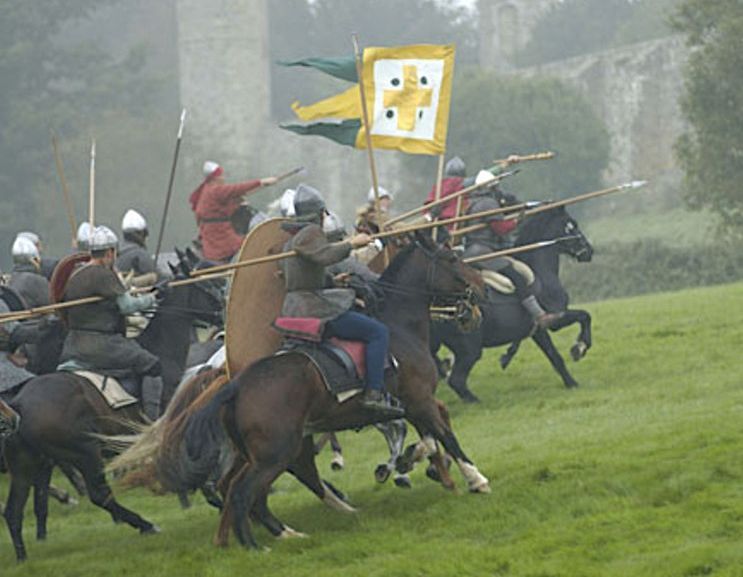
Odo dug hard into Broyeur's flesh with his spurs and was shaken as the black horse ran up the hill, as the Saxons fired at them.
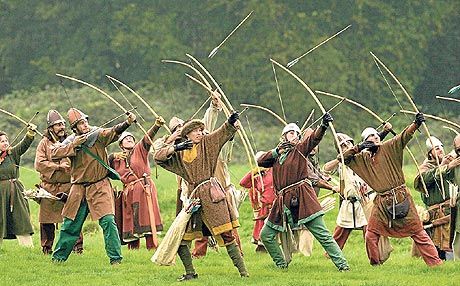
The Normans crashed into the Saxon footsoldiers with a thud of steel meeting leather and the cries of the mortally wounded.
Odo deflected a spear thrust and decapitated the perpetrator with a great swoosh of his sword, Rèmede, through the air.
It was no pushover, nothing like the charge-stab-deflect-victory easy time William had promised them back in Rouen.
Unlike him, these men had not been drawn to this muddy hill by the promise of loot, lands, women or absolution. No, the king's men had come and recruited them, and they came bearing their spears, their swords, their leather jerkins and even their pitchforks because they did not want greedy knights like him as their lords.
After an hour or so of fighting, Odo, bloodied and weary, realized something the mind-fog of battle and constant danger had blinded him to:
He was alone.
He had been one of the relatively few mounted survivors from the Saxon missile barrage, and now he detected something that sounded suspiciously like a cry of despair that pierced his ears from behind.
The sounds of clashing steel and leather were replaced by the sounds of panicked retreat on the Norman side, and joyful cries of Ut! Ut! on the Saxon side as Harold's men chased William's down the hill.
It was fading fast. The prospect of gaining lands and money that would enable him to step out of his bastard half-brother's shadow seemed dimmer and dimmer as the Normans fled down towards the camp near the foot of the hill.
He knew he had to do something immediately if there was to be any hope of him becoming anything more than a footnote, Duke William's forgotten half-brother.
Fortunately, his panicked brain came up with something that was not terribly original:
A shout.
He cried: "For God's sake, stand thy ground and defeat the infidel!" as he waved Rèmede above his head.
He was used to calling on God; he was a bishop after all.
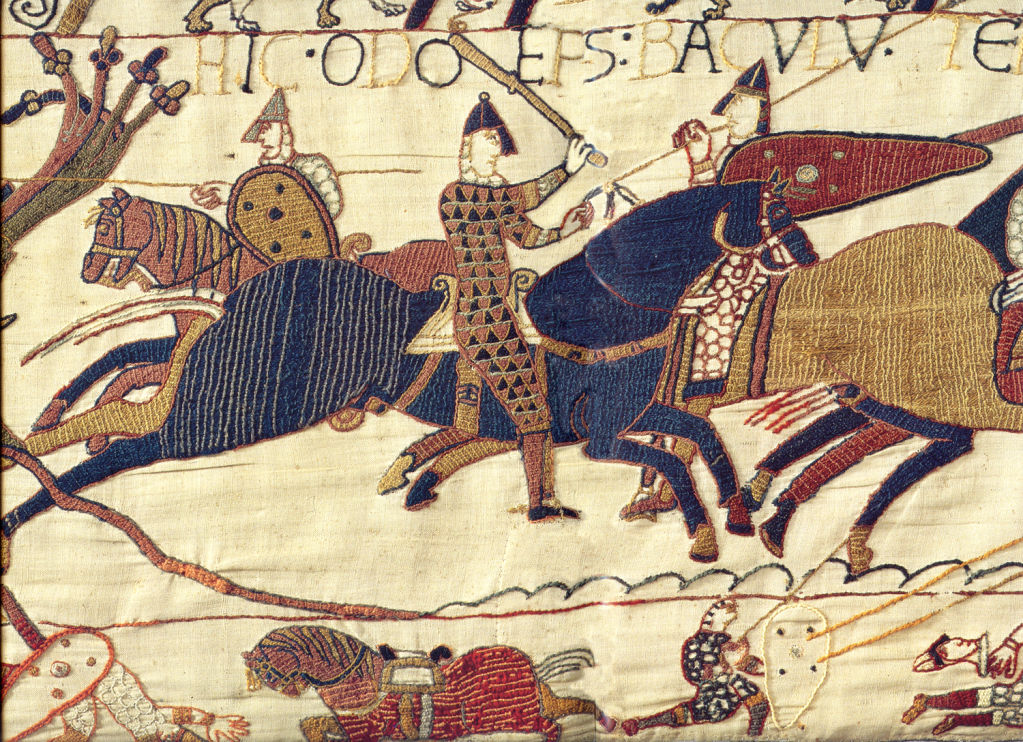
An image from the Dover Tapestry depicting Odo rallying the Normans at Hastings
The Normans, Bretons, and Flemish suddenly turned around to face the originator of the shout as it faded from its clarity that had been achieved over the great din. Then, Odo found one of the papal banners that Pope Alexander had sent as a token of his support for this pious venture against the infidel Harold, and waved it, impervious to the indignant Saxon weapons.
The Duke's men, catching sight of the banner, took heart, for God, as represented by His Vicar on Earth, was with them. They turned around and fought with renewed vigor.
Odo gave the banner to a grateful Breton knight, then took hold of Rèmede again and resumed the physical side of warfare.
But then he heard the hooves of a familiar horse, one Broyeur neighed at in acknowledgement. Its name was Diable, and its rider's face was obscured by a helmet.
Of course, thought Odo, William.
The Duke gave him a cursory look, then said in a loud voice so he could be heard clearly over the battle:
"Well done, brother."
Odo thought he could see a sneer on William's obscured face as he rode away.
Then
December 25, 1066
Westminster Abbey
Near Lundenwic
As the chants of the monks faded away, William, Count of Eu, walked over, then knelt to the man who shared his name and now wore a crown that many thought was not rightfully his.
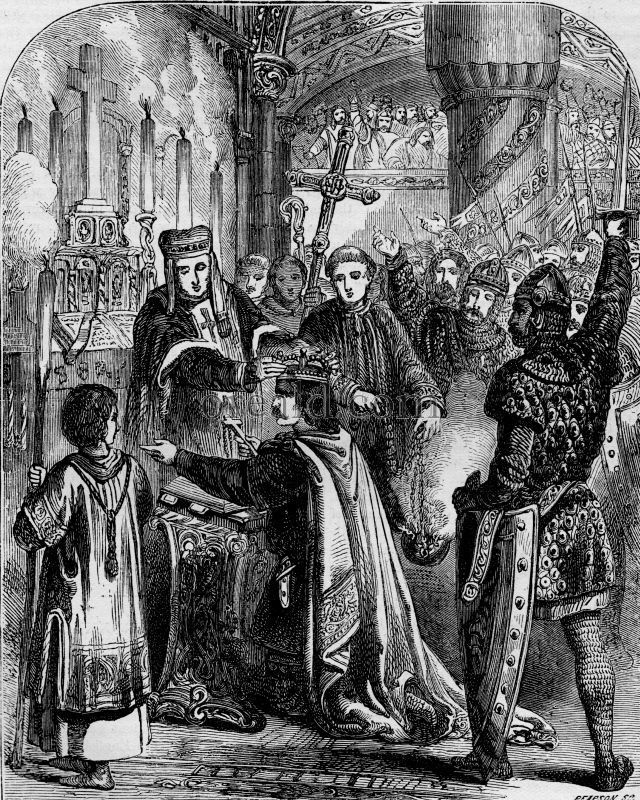
He cleared his throat, then spoke up with a booming voice:
"My dear lords, ladies, and people of our fair kingdom! I congratulate our new king on his receipt of the crown that should have been his almost a year ago when the beloved and pious Edward, builder of this great abbey passed away without a son. Now, my lord has some announcements he wishes to make concerning the governance of realm!
My lord, William, King of England, hereby appoints his faithful servant, Geoffrey de Mandeville as the new Count of Essex, as a ruler subject and owing fealty to King William.
My lord, William, King of England, hereby appoints his faithful servant, William de Crepon, as the new Count of Hereford, as a ruler subject and owing fealty to King William...."
The Count droned on and on with various appointments and confirmations of titles, such as the confirmation of Saxon Waltheof as Count of Northampton, and Odo de Conteville, standing a few paces to the right of his half-brother had almost shown a grave disrespect for the holy ceremony by being put to sleep by the unending and monotonous stream of bureaucracy, but fortunately a mention of him woke him up just in time, uttered by a hoarse-sounding William of Eu:
"And finally, my lord, William, King of England, hereby appoints his faithful servant, Odo de Conteville, as the new Count of Kent. His previous holding, the bishopric of Bayeux is hereby revoked in a measure to prevent a conflict of interests between his eccelesiastical and temporal duties."
Odo smiled. Finally, a county, as he had hoped for ever since he had pulled his brother's chestnuts out of the fire at Hastings. The revokation of his bishopric didn't bother him much; Church life was not much fun, nor was dealing with a bunch of spoilsport monks.
But he mastered his excitement. Asking a bystander, he discovered that the northern earls, the brothers Morcar and Edwin had not only retained their lands, but had been promoted to Dukes of Northumbria and Lancaster, respectively.
This was a double-edged sword. On the one hand, they would be rather grateful to William for allowing them to retain their lands after resisting him, especially when many of their peers were now dead on the battlefield of Hastings or dispossesed vagabonds such as the children of bygone Harold or his brother Tostig's sons.
On the other hand, they would not be especially pleased with or loyal to an invader who had usurped Harold, who had sided with the northern brothers in their quarrel with Tostig and had given them more or less free rein to do as they pleased in their lands.
And Waltheof? He was an unknown quality.
William of Eu sat down after announcing the feast.
Odo, as a nobleman and half-brother to the king, sat down above the salt, and was placed next to Waltheof, the young Saxon count of Northampton.
As the servants brought in the first meals, Waltheof turned to his neighbor, Morcar, and whispered: "Gytha's safe in Northampton."
Odo had been leaning over to Waltheof's side and as such he heard Waltheof's whisper. He asked him: "Gytha? The old king's daughter?"
Waltheof was visibly displeased at someone overhearing, especially a Norman, but denying it might look suspicious.
"Yes. What of her?"
Odo needed a countess. He did not want his lands to go to his brother, the Count of Mortain, and since he was no longer a bishop there were ways to release him from the law of St. Paul...
"Perhaps I could wed her? Kent needs a countess, after all..."
Waltheof's face took an appearence of displeasure at Odo's ignorance. "She's only thirteen years old. If you wait a bit, though..." Odo could detect a slight desire to get in good with the king's brother.
"Fair enough!" Odo exclaimed, drawing attention to him and the visibly uncomfortable young Saxon.
Waltheof's gaze seemed to wander, then rested on something. Then, it returned to Odo, and then he opened his mouth and said: "In the meantime, perhaps she could tide you over?"
Waltheof pointed at a twenty-looking garishly-dressed woman.
Odo smiled, then left the table.
Now
1 January 1067
Dover
England
Broyeur neighed as Odo held his reins tight. With dawn they had come into sight of the fort, and now, as the sun approached its noontime zenith, the shabby-looking fort was fully in view and seemed to be waiting for Odo to just ride in.
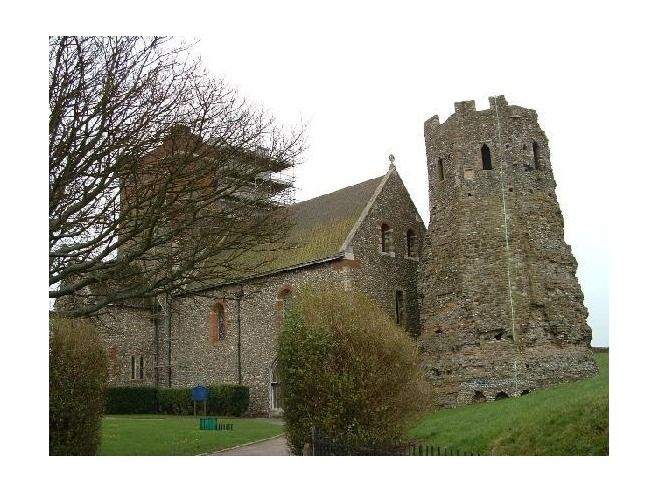
This wasn't the first time Odo had been here. After the battle of Hastings the Normans had turned west into Kent and entered Dover, but they had quickly continued on their way after the people put up fierce resistance. In fact, when they passed through Dover it was the first time since the battle that Odo wished he was back in Normandy.
And now this was his home. Behind him was a procession of Norman knights and adventurers who had decided to accompany him to his new holding, God only knows why him and not some other count.
He dismounted, followed by his little, pathetic entourage.
Behind him he heard a little voice saying: "Faversham. I like that name. That's my name now: Joscelin de Faversham."
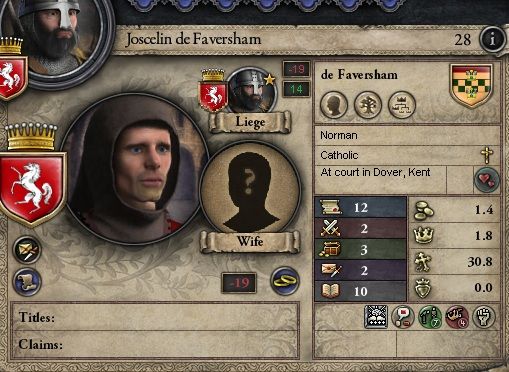
Odo sighed. Joscelin, a twenty-eight-year-old merchant's son from Caen had been so lazy that instead of fighting at Hastings he squandered nearly his entire family fortune hiring a substitue to replace him in the battlefield. Now, newly enriched by loot from the conquered cities of southern England, he had wormed his way into Odo's entourage.
So what did he want now?
"Joscelin, you are not getting the lordship of Faversham. It's far too early for that." he said, wearily.
He could not, of course, directly insult the young man; Joscelin's rich father had been an important backer, both politically and especially financially of King William's invasion.
Odo, followed by Joscelin and the rest, proceeded to enter the fort.
Unfortunately, on a wooden table behind the main door was an official-looking piece of parchment.
As a relative of the duke and a cleric Odo was one of the few literates of the age; Rich Joscelin, regretfully, was another.
It said:
"To my loyal servant Odo FitzHerluin de Conteville, Count of Kent.
I hope this message reaches Dover before you do.
If all is as I commanded Joscelin FitzGilbert, my loyal man is with you and will read this as well.
It has come to my attention that the people of Kent are a rather unruly folk who will not be cowed by our military prowess.
Therefore, I command you to appoint Joscelin as chancellor and minister to the people of your county, so that they remain loyal to you, and more importantly, my august crown.
Do not contact me or contradict this order; I have enough on my mind as it is.
Your lord,
William, King of England and Duke of Normandy."
No mention of any fraternal love, nor did the contents of the letter display any.
Joscelin, however, smiled from ear to ear in elation.
Suddenly, a great noise sounded from outside the fort, something he hadn't heard since Hastings:
Ut! Ut!
Rushing outside, he discovered the true loyalty of his subjects as they waved their pitchforks and burning torches.
Odo pressed his hands to his temples in frustration.
But Joscelin was not downhearted.
"Don't worry, I'm your chancellor!," he said, "I'll deal with this!"
But Odo's worries only increased with that saying.
Last edited:



